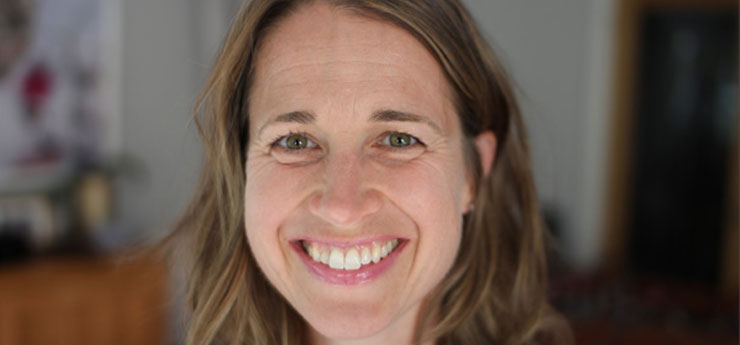Dr Julie Peconi is the Chief Investigator (CI) of the Sunproofed Study. Her research aims to understand how primary schools in Wales are responding to growing skin cancer rates and to explore the effectiveness of sun safety policies in schools on knowledge and behaviour.
I am the Chief Investigator for Sunproofed Study, a 2-year study funded by Health and Care Research Wales which aims to understand how primary schools in Wales are responding to growing skin cancer rates and to explore the effectiveness of sun safety policies in schools on knowledge and behaviour.
I’m also the Co-Chief Investigator on two other skin health related studies: SunChat which explores children and their carers’ perceptions of sun tanning and SunView, a collaboration with Oriel Science. I’m based in Swansea Trials Unit, in the Medical School, where I have also worked in the research areas of access to healthcare, dementia, and endometriosis.

How did you become interested in the field?
Both my husband and son have a rare genetic skin condition (pachyonychia congenita and in 2015 I started working part time for Skin Care Cymru, a charity advocating for those with skin conditions in Wales. Based on my family’s personal experience of waiting over 6 months to be seen by a dermatologist, and acting as the secretariat to the Welsh Assembly Cross Party Group on Skin, my interest in researching skin health and the provision of care in this area grew.
I was also surprised to learn that while the majority of skin cancers are preventable, rates are on the rise in Wales and the disease now accounts for 50% of all cancers in the UK. There is international evidence to suggest that educating children about sun safety in schools is one way to prevent skin cancer and in England teaching sun safety in primary schools is now compulsory. However in Wales this is left up to school discretion. This led me to my current projects. I wanted to help fill the evidence gap as to what schools in Wales were doing, what is working and to better understand what support they need in this area.
How did you come to work at Swansea University?
Relocating to Wales from Canada, I first worked for Opinion Research Services. I then joined Swansea University as Project Manager for an Evaluation of NHS Direct Wales (NHSDW) in what was then called the Clinical School. I soon began a PhD alongside my role looking at the epidemiology of demand for, and outcomes of, contacts with telephone-based healthcare. Upon completion of my PhD I took up a role as a data manager within Swansea Trials Unit in the School of Medicine. After a brief role in trial management, I successfully secured funding for Sunproofed and have continued to expand research in the area of skin health.
What do you hope to achieve with your research?
The increasing rates of skin cancer rates in Wales are straining already limited NHS resources. Yet in the UK, evidence suggests that understanding of sun exposure risks are still mixed and often there’s a difference between knowledge and behaviour, i.e. people know what they should be doing but don’t always do it! And as a parent myself, I know how hard it was to get my children to wear sun cream!
However, given that severe sunburn as a child can dramatically increase the chances of skin cancer when older, I would love for my research to inform the development of future prevention activities, both in Wales and beyond. This could reduce the number of skin cancer cases in the future and keep people healthier for longer. I also hope my research encourages children to understand why they need to protect themselves, empowering them to take control over their healthy behaviours when it comes to sun protection.
What practical applications could your research have?
It’s my hope that all my research will help Wales move further towards skin cancer prevention. For example, the Sunproofed study will provide a snapshot of the current landscape in Wales with regards to sun safety policies in schools. One of our key outputs will be co-producing a simple set of evidence-based guidance that schools can adapt as they see fit.
With SunView, our Oriel Science exhibit and workshops, not only we will be highlighting our findings from Sunproofed, bringing them to the attention of parents, children and other visitors but we’ve also purchased a UV camera that will allow visitors the chance to see their face as the ‘sun sees them’ both with and without sun cream on, illustrating exactly how sun cream protects them.
What is next for your research?
My upcoming goals are to focus on getting our findings out! One of the reasons that I became a researcher was to try to use my skills to make a difference in people’s lives but that’s not going to happen if we don’t publicise and share our results beyond just academic papers. This is one of the reasons why I’m so excited about the collaboration with Oriel Science- it’s a fantastic opportunity to bring science to the public. I’d also like to expand the Sunproofed study into secondary schools and will be seeking funding to continue work in this area.
